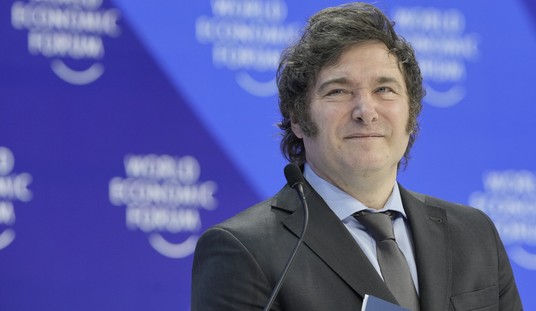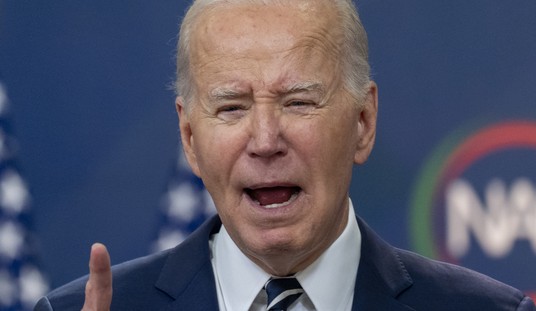In response to Elon Musk’s announcement of a new transportation concept , R. D. Brewer wrote a post at Ace of Spades which cited this bit of ignorant, snarky, bravo sierra by Craig Pirrong, which itself cites some two-year-old lies by bought-and-paid-for Lockheed Martin lobbyist Loren Thompson:
…consider SpaceX. This venture provides evidence of Musk’s love for Occupy: he has promised that this private space venture will go to Mars, and wears an Occupy Mars shirt to make the point.
It is also touted as a privately capitalized space venture, which it is, I guess, but it is also almost completely dependent on government contracts. The private money is attracted by the scent of public money. Sorry, but a company that is dependent on NASA’s IV for support is not truly a private company: the company is basically a cutout between the investors and the taxpayers.
The company has not exactly covered itself in glory. It had serious trouble with its initial launches, including an embarrassing episode in which the ashes of Star Trek’s Scotty, James Doohan, were on a SpaceX craft that didn’t make it into space: it crashed instead somewhere in the South Pacific. Which I guess would have been great if James Doohan had starred in South Pacific. Don’t worry, though. As a precaution, some of Mr. Doohan’s ashes were retained, and that part of the beloved actor’s remains did make it into space as he desired.
And speaking of Broadway and movie classics, Musk is auditioning for a role in a summer stock Music Man with his boosterism of SpaceX:
You don’t have to be a believer in conspiracy theories to wonder why senior government officials are so committed to going the commercial route in space. Even a cursory review of SpaceX programs and plans reveals reasons for doubt. The questions begin with a business strategy that isn’t just disruptive, but downright incredible. Mr. Musk says that he can offer launch prices far below those quoted by any traditional provider — including the Chinese — by running a lean, vertically integrated enterprise with minimal government oversight that achieves sizable economies of scale. The economies of scale are possible, he contends, because there is huge pent-up demand for space travel in the marketplace that cannot be met within the prevailing pricing structure. By dropping prices substantially, this latent demand can then be unlocked, greatly increasing the rate of rocket production and launches. When combined with other features of the SpaceX business model, the increased pace of production and launches results in revolutionary price reductions.
There isn’t much serious research to demonstrate that the pent-up demand Musk postulates really exists, nor that the price reductions he foresees are feasible. He has suggested in some interviews that launch costs could decline to a small fraction of current levels if all the assumptions in his business plan come true, and he has posted a commentary on his web-site explaining how SpaceX is already able to offer the lowest prices in the business. It’s hard to look inside the operations of a private company, but SpaceX does seem to be doing all the things necessary to minimize costs such as using proven technology, building as many items as possible in-house, and hiring a young workforce willing to work long hours. And to his credit, Musk has committed over $100 million of his own money to the venture. However, his rockets have major performance limitations compared with other launch vehicles in the market, and they are not yet rated as safe for carrying people. Becoming “man-rated” will necessarily increase the role of federal officials in monitoring SpaceX operations, which is not good news for a business model grounded in minimal government oversight (traditional launch providers say government regulations and overhead charges are a key driver in their own pricing policies).
Downright incredible sounds about right. It sounds like a con to me. Especially the whole “economy of scale” thing. That’s the kind of thing defense contractors say to get the government to buy more units of a plane or ship. It’s not good economics.
And Musk’s winning personality was on display when questioned about SpaceX’s launch failures:
Mr. Musk recently responded to a question from Space News reporter Amy Svitak about the two-year delay in accomplishing that second Falcon 9 launch by observing, “In the space business that’s on time.” Perhaps he was irritated by the reporter’s implied criticism, but it goes without saying that if astronauts on board the space station are awaiting supplies, a prolonged launch delay could spell big trouble.
What a guy. Takes your money, and then gets peevish when you accuse him he’s blowing it.
Phew. Well, first, Thompson’s libelous, deceitful nonsense was ably responded to at the time by Bobby Block.
Whether or not Mr. Pirrong finds it credible or not, the fact is that Elon Musk has developed an entire company, two launch vehicles and a manufacturing facility for them, test facilities, launch pads and its own mission control for about the cost of a single Space Shuttle launch. He has broken the NASA/Air-Force Cost Model (NAFCOM) which would have predicted his system development to cost from three to ten times more than it actually ended up being.
The other fact is that the company is not on a “NASA IV,” or “completely dependent on government contracts” (though that’s certainly true of, e.g., Lockheed Martin). It has a solid order book, with many commercial launches on the manifest, the most recent of which was from the Canadian company MacDonald Dettwiler & Associates a couple weeks ago to launch their new radar satellites. It is taking back the foreign satellite launch sales that American industry had abandoned to foreign competition in the nineties because Atlas and Delta had been priced out of the market by Europe, Russia and China. Now, the company even has the Chinese running scared, because they can’t compete against it, even with a taxpayer-subsidized system.
And speaking of taxpayer subsidies, the only taxpayer money the company has ever taken was not (unlike Tesla) in the form of guaranteed loans, but simply as fee for payment for fixed-price milestones, in order to accelerate the development of the Dragon cargo (and soon, crew) capsule. This will enable it to resupply the ISS, and reduce (and eventually, hopefully eliminate) our reliance on the Russians for its support. That is to say, NASA needs SpaceX much more than SpaceX needs NASA’s money. Without the NASA contracts, the company would simply be doing commercial launches, and developing the Dragon at a more leisurely pace. The ultimate and much larger market for the system is to support private space facilities, such as those being developed by Bigelow Aerospace, in the latter part of the decade. And yes, launch delays are in fact entirely normal for this industry, as are failures of early test flights, from which the company has obviously learned lessons, since it has never suffered a significant failure of the Falcon 9. No one at the ISS was going hungry waiting for the Dragon delivery, because the Russians have been delivering cargo.
As for the other nonsense, I’m aware of no evidence that Elon is supportive of the Occumorons, and I certainly saw none presented here. From what I know of him (and we’ve spoken a few times), I find that highly improbable. If he ever did wear an “Occupy Mars” shirt (again, I await evidence), it would be much less indicative of any sympathy for the police-car poopers than as an expression of his oft-stated goal of sending thousands there, and retiring there himself.
As for Tesla, which is a completely different business model than SpaceX, I don’t think that taxpayers should subsidize loans for anything, but if the government is handing out money for a business in which you’re engaged, it would be just as foolish to turn it down as to not take advantage of every tax break when you do your personal return. And unlike Solyndra, which went mammaries up with taxpayers holding the bag, Tesla has repaid its loans in full ahead of schedule. I don’t know whether the company will be successful or not, or whether it could survive absent idiotic subsidies from California, but at this point it doesn’t really matter to the taxpayers.
Now, I don’t think that Elon is a saint, and there are certainly some things for which to criticize him. I think he’s working very hard to build a company, but not hard enough to build an industry, and he’s reportedly pretty hard on both his people and his vendors, with a lot of churn in his growing company. But that’s not atypical of Silicon Valley, which is the model for all his companies, rather than the traditional hierarchical aerospace industry model. It seems to be working, at least in terms of revolutionary reductions in the cost of space access — with a promise of much more if he can get the reusability for which he’s ultimately aimed. I don’t know whether or not the hyperloop makes any economic sense (though I suspect that it’s certainly technically feasible), but if you’re going to criticize him, as many who love to hate on him seem determined to do at every opportunity, it would be nice if, just once in a while, the criticism would have some basis in reality.








Join the conversation as a VIP Member